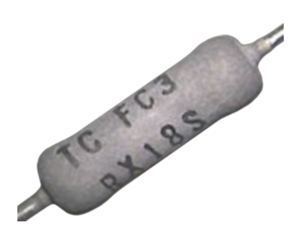What does a wire precision resistor do?

A wire precision resistor, also called a wirewound precision resistor, is a type of resistor that is constructed using a skinny wire wound around a ceramic or other non-conductive core. These resistors are designed to provide excessive accuracy and stability of their resistance values, making them appropriate for functions that require exact and dependable resistance characteristics. Here's what a wire precision resistor does and the means it works:
Accurate Resistance Value:
The primary perform of a wire precision resistor is to supply a highly accurate and secure resistance value. These resistors are manufactured with tight tolerances to make certain that their actual resistance carefully matches the desired nominal worth.
Stability Over Time and Temperature:
Wire precision resistors are known for their stability over time and temperature adjustments. This stability is essential in purposes the place constant resistance values are crucial for the right functioning of digital circuits.
Low Temperature Coefficient:
Wire precision resistors are designed to have a low temperature coefficient of resistance (TCR). This means that their resistance value adjustments very little with variations in temperature. Low TCR is essential for maintaining accuracy over a wide temperature vary.
High Power Handling Capability:
Wire precision resistors are capable of handling comparatively excessive ranges of power without significant adjustments in resistance value. This makes them suitable for functions involving energy dissipation.
Precision Voltage Dividers:
Wire precision resistors are often used in precision voltage divider circuits. These circuits divide a voltage into particular ratios and are generally used for reference voltages and signal conditioning.
Signal Conditioning and Attenuation:
These resistors can be utilized in sign conditioning circuits to attenuate or regulate sign ranges whereas sustaining accuracy.
Feedback Networks:
Wire precision resistors are utilized in feedback networks of amplifiers and operational amplifiers to set gain, stability, and performance parameters.
Measurement and Calibration:
Wire precision resistors are employed as calibration standards and in measurement circuits the place correct resistance values are essential for obtaining accurate readings.
https://riedon.com/resistors/precision :

They are utilized in voltage reference circuits to generate steady and correct reference voltages.
Laboratory and Test Equipment:
Wire precision resistors are generally utilized in laboratories and check tools for calibrating and verifying the accuracy of measurement devices.
Wire precision resistors are available in numerous resistance values, power ratings, and configurations to fulfill the particular necessities of different functions. Engineers fastidiously select these resistors based mostly on components such as required accuracy, stability, energy dealing with, temperature coefficient, and budget. When built-in into digital circuits, wire precision resistors contribute to the overall accuracy, reliability, and performance of the system..
